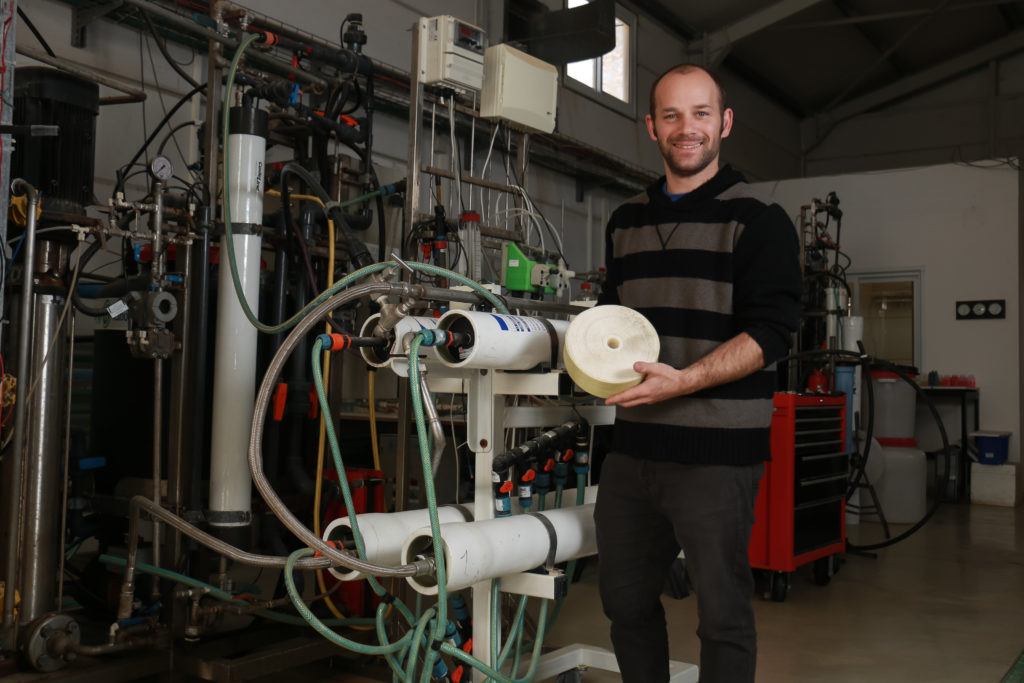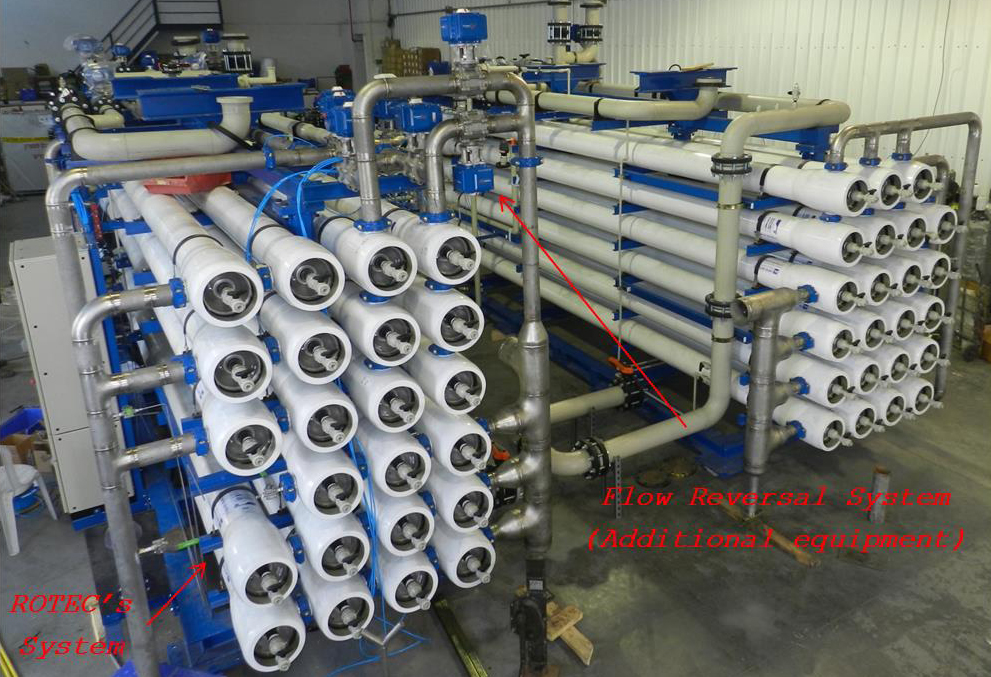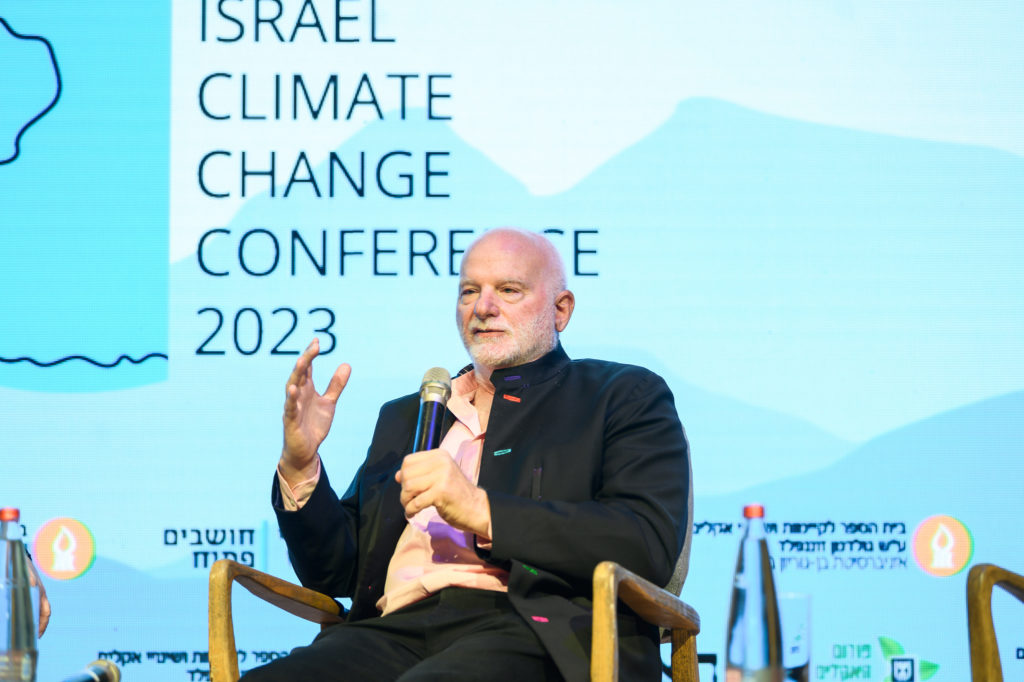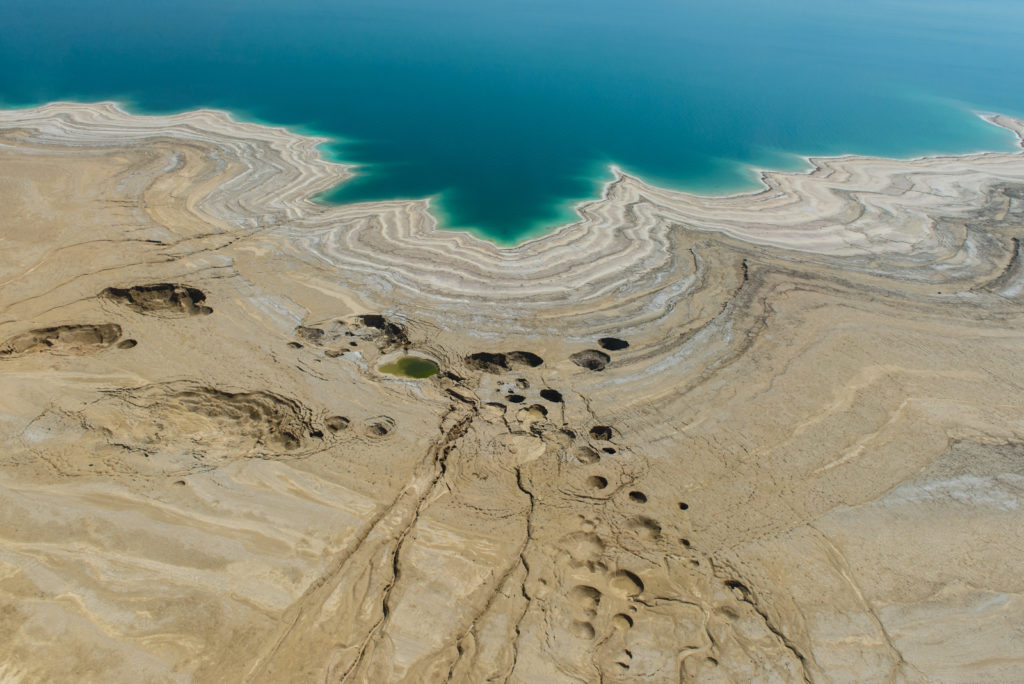
A Land of Milk and Honey — and Water
A Land of Milk and Honey — and Water
May 5, 2016
Baltimore Jewish Times and Washington Jewish Week — Even as one of the world’s smallest countries, Israel is at the forefront of progress toward tackling one of the world’s largest problems: water scarcity.

A student holds a desalination membrane in the Zuckerberg Institute’s Pilot Plant for Desalination and Water Treatment.
Israel now uses a combination of freshwater from the Kinneret (Sea of Galilee) and desalinated seawater from the Mediterranean as its potable water sources for both drinking and irrigation. More than 85 percent of Israel’s treated wastewater is recycled and is used for irrigation of crops, which is higher than anywhere else in the world. Spain, which is next, recycles 20 percent of its wastewater.
At the helm of much of Israel’s water innovation has been BGU’s Zuckerberg Institute for Water Research.
Over the years the Zuckerberg Institute has produced a number of technological innovations in the field of water sustainability. A startup called ROTEC, based on technology developed by BGU’s Prof. Jack Gilron, designs mineral scaling technology that prevents mineral salt deposits from collecting in membranes during the desalination process.

The ROTEC flow reversal system to prevent mineral scaling on the membranes during desalination was invented by BGU’s Prof. Jack Gilron.
The company has already brought its desalination technology to Jordan, the United States and several countries in Europe.
“The unique thing about our technology is that you can incorporate it into a new system, or you can incorporate it in an existing system,” says ROTEC’s Chief Executive Officer Dr. Noam Perlmutter.
Desalinated water has become a hot commodity around the world, used by large corporations such as IBM and Coca-Cola.
“In the United States, desalination is taking out water from the sea and creating potable water,” says Dr. Perlmutter. “But desalination is much more than that. Today, you’re using desalination in every aspect of the industry.”
It is apparent that Israel has been on the cutting edge of water technology for quite some time, but just how much time may come as a surprise: The remains of the ancient Israelites’ irrigation systems from the seventh century B.C.E. can be seen on the site of Tel Beer-Sheva, just east of modern day Beer-Sheva.
Prof. Steve Rosen, of BGU’s Department of Bible, Archaeology and Ancient Near East, who helped uncover the site in the 1970s, calls the ancient Israelite methods a “feat of engineering genius.”
“They had no optical instruments. They had obviously no mechanical instruments. The whole thing is dug by hand with picks. The dirt is removed on the backs of donkeys and on the backs of people,” Prof. Rosen says.
This post is excerpted from an article written by Daniel Schere, who participated in Americans for Ben-Gurion University’s 2016 Murray Fromson Media Mission.
Read the full cover story on the Baltimore Jewish Times and
Washington Jewish Week websites >>



